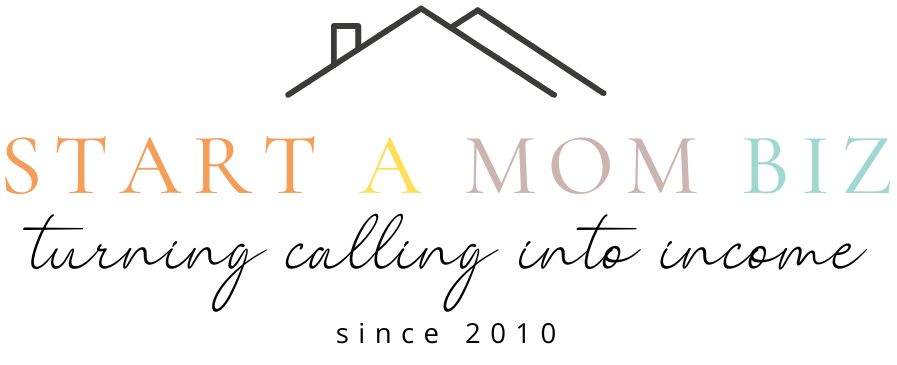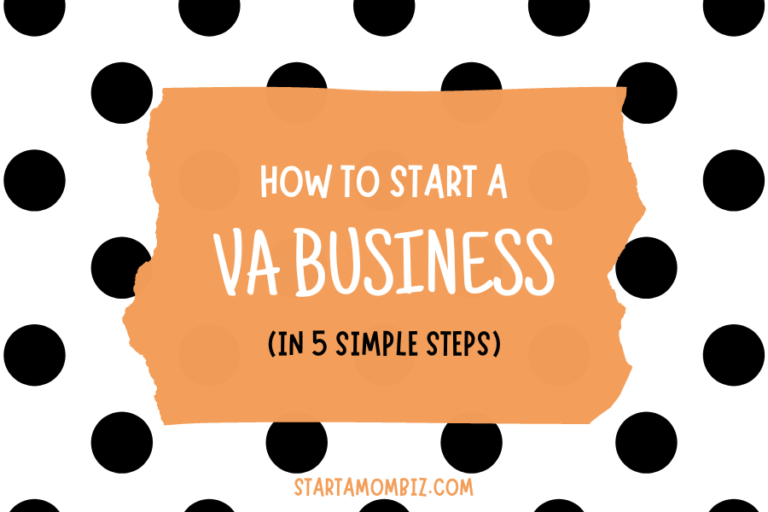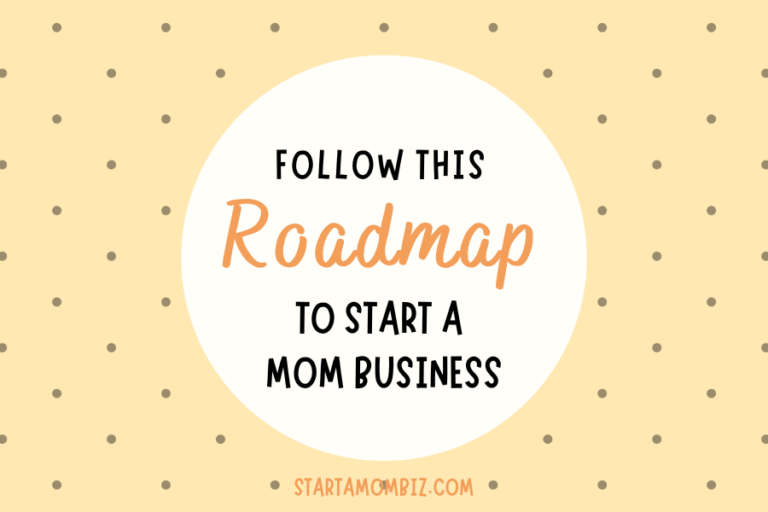How To Start a Life Coaching Business from Home
Learn how to start a life coaching business from home with this step-by-step guide designed especially for Christian stay-at-home moms.

As you know, I’m a business coach who specializes in working with faith-centered, ambitious, driven, Christian stay-at-home moms who are family-oriented and are within their first few years of staying home.
I know firsthand the challenges that stay-at-home moms face. I’ve been a stay-at-home mom myself for over 13 years, and I struggled early on with feeling lost and unfulfilled. I didn’t know who I was anymore, and I didn’t know what I wanted to do with my life.
But then I tapped into my experience in corporate coaching and it changed everything. Life coaching helped me to rediscover my identity, find my calling, and start a successful business from home.
As a result, I’m passionate about helping other stay-at-home moms experience the same transformation that I did. That’s why I started offering business coaching through my blog and business products.
In this blog post, I’m going to share with you the steps on how to start a life coaching business from home. I’ll cover everything from choosing your niche to getting your first clients.
If you’re a stay-at-home mom who’s looking for a way to make a difference in the world and wants to learn how to start a mom business from home, then I encourage you to read this blog post. It could be the start of your own amazing journey as a life coach.
Step 1: Choose your niche
The first step in starting a life coaching business is to choose your niche. This means identifying a specific group of people that you want to work with. For example, you could specialize in working with stay-at-home moms, entrepreneurs, or people who are struggling with eating healthy or losing weight.
When choosing your niche, there are a few things to keep in mind:
- What are you passionate about? This is important because you’ll be spending a lot of time working with people in your niche, so it’s important that you’re passionate about helping them.
- What are your strengths and skills? What do you know a lot about? What are you good at? These are all factors that will help you choose a niche that’s a good fit for you.
- What are the needs of your target audience? What are they struggling with? What do they need help with? Once you understand the needs of your target audience, you can start to develop your life coaching services to meet those needs.
Specific tips for choosing your niche
In learning how to start a life coaching business from home, you really want to choose the right niche. Here are some specific tips for choosing a niche for your life coaching business:
- Think about your own experiences. What have you been through that has given you valuable insights into helping others?
- Look for trends. What are the current challenges that people are facing? What are the emerging trends in the self-help and personal development space?
- Do your research. Talk to people in your target audience and see what they’re struggling with. Read books and articles about your niche.
- Make sure your niche is big enough. You want to be able to find enough people in your niche who are interested in your services.
- Be sure your niche is specific. The more specific your niche, the more you’ll be able to position yourself as an expert in that area.
- Make sure your niche is aligned with your values. You want to be passionate about helping people in your niche, so make sure your values are aligned with theirs.
Once you’ve chosen your niche, you’ll be well on your way to starting a successful life coaching business from home.
Step 2: Get the right coaching credentials
Your next step is to make sure you have the credibility that will not only attract but also retain clients. There are many different life coaching certifications available. Some of the most popular certifications include:
International Coach Federation (ICF):
The International Coach Federation (ICF) is the largest and most well-respected coaching organization in the world. Its certification program is the gold standard in the industry, and it is recognized by many employers and organizations.
The ICF certification program is a rigorous process that requires coaches to complete a minimum of 125 hours of training, pass an exam, and maintain their certification through continuing education.
International Association of Coaching (IAC):
The International Association of Coaching (IAC) is another well-respected coaching organization. Its certification program is similar to the ICF’s, but it is not as widely recognized.
The IAC certification program requires coaches to complete a minimum of 100 hours of training, pass an exam, and maintain their certification through continuing education.
Life Coach Training Institute (LCTI)
The Life Coach Training Institute (LCTI) is a newer coaching organization, but it has quickly become a popular choice for coaches. Its certification program is less rigorous than the ICF’s or the IAC’s, but it is still a good option for coaches who are looking for a quality certification.
The LCTI certification program requires coaches to complete a minimum of 60 hours of training, pass an exam, and maintain their certification through continuing education.
Certified Life Coach Institute (CLCI)
The Certified Life Coach Institute (CLCI) is another newer coaching organization. Its certification program is similar to the LCTI’s, but it is not as widely recognized.
The CLCI certification program requires coaches to complete a minimum of 60 hours of training, pass an exam, and maintain their certification through continuing education.
Which certification is right for you?
The best way to decide which certification is right for you is to consider your own needs and goals. If you want to work with corporate clients or high-level executives, then you may want to consider the ICF certification. If you want to work with a more general audience, then you may want to consider the IAC or LCTI certification.
No matter which certification you choose, make sure that it is accredited by a reputable organization. This will show potential clients that you are qualified to help them.
When choosing a certification, it’s important to consider the following factors:
- The accreditation of the organization that offers the certification. Make sure that the organization is accredited by a reputable organization, such as the International Coach Federation (ICF).
- The length and content of the certification program. Some programs are more comprehensive than others. Make sure that the program you choose meets your needs and interests.
- The cost of the certification program. Certification programs can range in price from a few hundred dollars to several thousand dollars. Choose a program that fits your budget.
Getting certified will show potential clients that you are qualified to help them. It will also give you the skills and knowledge you need to be an effective life coach.
Here are some additional tips for getting the right coaching credentials:
- Do your research. Read reviews of different certification programs before you make a decision.
- Talk to other life coaches. Get their recommendations on which certification programs they recommend.
- Consider your own needs and goals. What are you looking for in a certification program?
Once you’ve chosen a certification program, be sure to complete the coursework and pass the exams. With hard work and dedication, you can earn the credentials you need to start your own successful life coaching business.
Step 3: Create a life coaching package
Once you’ve chosen your niche, it’s time to create a life coaching package. This is a set of services that you’ll offer to your clients. Your clients may have a variety of goals, such as:
- To overcome self-doubt and rediscover their identity
- To gain clarity on their calling
- To start a home business or find work from home
- To improve their relationships
- To lose weight or get in shape
- To reduce stress or anxiety
- To improve their overall well-being
Once you know your client’s goals, you can tailor your services to help them achieve them. For example, if you’re targeting women who want to lose weight, your package might include services such as:
- Personalized nutritional guidance
- Lifestyle coaching to support their weight loss goals
- Personalized exercise programs
Creating your Package
When creating your life coaching package, there are a few things to keep in mind:
- Start with a clear understanding of your target audience. What are their needs? What are their goals? Once you understand your target audience, you can start to develop a package that meets their needs.
- Be specific about the services that you offer. What will you do for your clients? What are the benefits of your services?
- Be clear about your pricing. How much will you charge for your services? Make sure that your pricing is competitive and that it reflects the value of your services.
- Be flexible. Be willing to adjust your package as needed to meet the needs of your clients.
- Make sure your package is comprehensive. It should include all of the services that your clients need to achieve their goals.
- Make sure your package is affordable. You want to make sure that your clients can afford your services.
- Make sure your package is easy to understand. Your clients should be able to understand what’s included in your package and how it can help them.
Once you’ve created your life coaching package, you’ll be well on your way to starting a successful life coaching business from home.
Start Marketing Your Coaching Services in Style
With these FREE Business Cards
Elevate your coaching practice with our FREE Life Coach Business Card Templates. Designed exclusively for life coaches, these professional templates are editable in Canva, allowing you to customize the sleek and modern design with your contact details and impactful messaging.
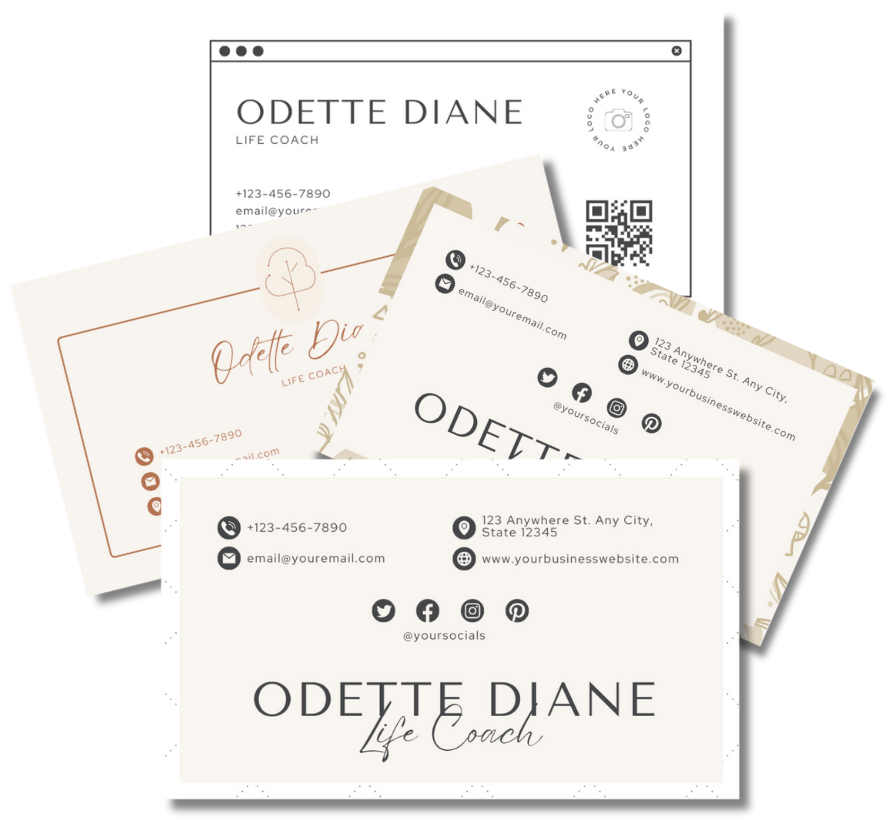
You get 4 different design styles that you can edit to fit your brand. Showcase your unique coaching style and leave a lasting impression on your clients. Simply download the templates, import them into Canva, and effortlessly personalize them to reflect your brand.
Step 4: Set up your coaching business
Once you have your coaching credentials, it’s time to set up your business. This includes getting a business license and insurance, creating a website and social media presence, and marketing your services to your target audience.
Get a business license and insurance.
A business license is required in most jurisdictions. It will allow you to operate your business legally and give you some protection in case of legal problems.
Steps for getting your business license:
1. Check if you need a business license.
Not all businesses need a business license. Some businesses, such as sole proprietorships and partnerships, may not need a business license if they operate under the owner’s name. However, other businesses, such as corporations and LLCs, will need a business license.
Check your state or city government’s website for information about business licenses. You can usually find this information by searching for “business licenses” or “business registration” on your state’s website.
Another resource is the Small Business Administration (SBA). The SBA is a federal government agency that provides resources and assistance to small businesses. The SBA has a website where you can find information about business licenses, including a list of states that require business licenses.
2. Find out where to apply for a business license.
The requirements for getting a business license vary from state to state and city to city. So, you need to find out where to apply for a business license in your area. You can usually find this information on your state or city government’s website.
3. Gather the required documents.
The required documents for getting a business license will vary depending on your location and type of business structure. However, you will typically need to provide the following documents:
Proof of your business name. This could be a copy of your business registration certificate or a fictitious business name (DBA) registration.
Proof of your business address. If planning to work from home, this could be a copy of a utility bill.
Proof of your business ownership. This could be a copy of your business formation documents, such as your business plan.
4. Complete the application form.
Once you have gathered the required documents, you will need to complete the application form for a business license. The application form will typically ask for information about your business, such as your business name, address, and type of business.
5. Pay the application fee.
There is typically an application fee for getting a business license. The application fee will vary depending on your location.
6. Submit your application.
Once you have completed the application form and paid the application fee, you will need to submit your application to the appropriate government agency.
7. Wait for approval.
The government agency will review your application and approve or deny your request for a business license. The approval process typically takes a few weeks.
Once your business license is approved, you will be able to legally operate your business. It is important to keep your business license up-to-date and renew it as needed.
Additional tips for getting a business license:
- Start the process early. The process of getting a business license can take a few weeks, so it is important to start the process early.
- Be prepared. Make sure you have all of the required documents before you submit your application.
- Follow the instructions. Make sure you follow the instructions on the application form carefully.
- Be patient. The approval process can take a few weeks.
Insurance is also important for businesses. It can protect you from financial losses in case of accidents or lawsuits.
Create a website and social media presence.
Your website is your online home. It’s where potential clients will go to learn more about you and your services. Make sure your website is professional and easy to navigate.
Social media is also a great way to connect with potential clients. Share your content, engage with your audience, and promote your services.
Market your services to your target audience.
Once you have your website and social media presence set up, it’s time to start marketing your services. There are many ways to market your services, such as:
- Networking with other professionals in your field.
- Guest blogging on industry-related websites.
- Speaking at events.
- Running paid advertising campaigns.
The best way to market your services will depend on your target audience and your budget.
Once you have set up your business, you can start to attract clients.
With hard work and dedication, you can build a successful life coaching business.
Here are some additional tips for setting up your coaching business:
- Choose a business name that is easy to remember and pronounce.
- Create a logo that is professional and reflects your brand.
- Develop a marketing plan that outlines your goals and strategies.
- Set up a payment system that is easy for clients to use.
- Provide excellent customer service.
Launch and Grow a Thriving Life Coaching Business
Introducing our Life Coach Business Starter Kit – your ultimate resource for launching and growing a thriving life coaching business. This kit includes a collection of editable Canva templates designed to help you establish a professional brand, engage clients effectively, and streamline administrative processes.
From business cards and coaching agreements to a customizable website template and client intake forms, this comprehensive kit has everything you need to turn your passion into a successful venture. Take the first step towards building your coaching empire with our Life Coach Business Starter Kit today!
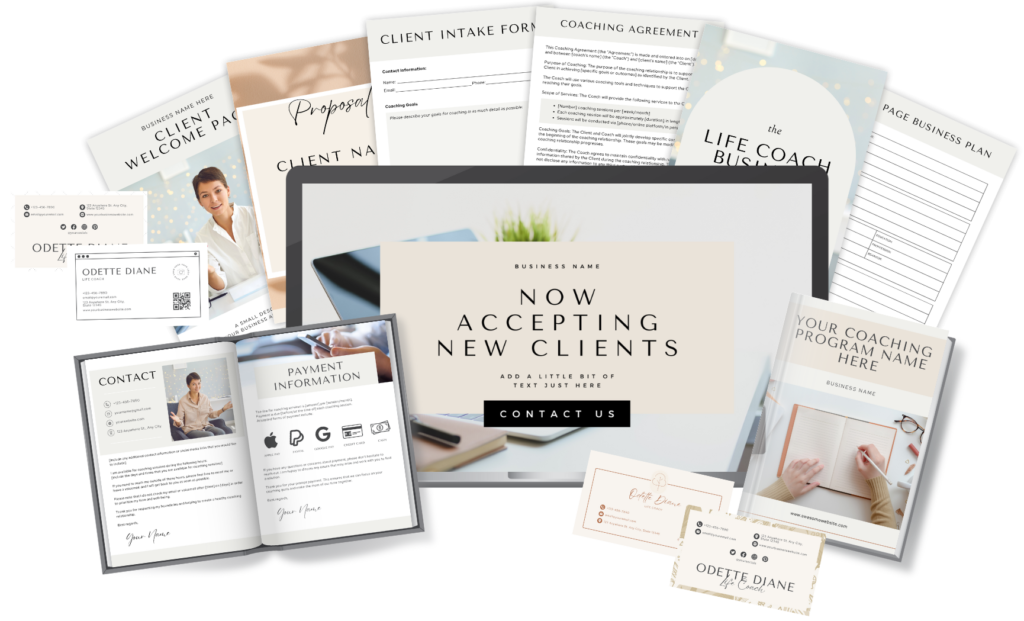
Step 5: Get your first clients
Once you have set up your coaching business, it’s time to start getting your first clients. Here are a few tips:
- Network with people in your target audience. Talk to people who are interested in the same things as your target audience. Attend industry events, join online forums, and connect with people on social media.
- Offer free introductory consultations. This is a great way to introduce yourself to potential clients and show them what you can do.
- Write blog posts and articles about your coaching services. This is a great way to share your expertise and attract new clients.
- Get involved in online forums and communities. This is a great way to connect with potential clients and answer their questions.
Once you have a few clients, you can start to build your business. With hard work and dedication, you can build a successful life coaching business.
Just remember…
- Be patient. It takes time to build a successful business. Don’t get discouraged if you don’t get your first client right away.
- Be persistent. Keep networking, writing, and getting involved in online communities. The more people you reach, the more likely you are to find your first client.
- Offer value. Make sure that you are offering something of value to your potential clients. This could be free introductory consultations, blog posts, or articles that provide valuable information.
Summary on how to start a life coaching business from home…
Learning how to start a life coaching business from home can be a rewarding and fulfilling experience. By following the steps outlined in this blog post, you can set yourself up for success.
Here are the key points to remember:
- Choose a niche. What are your areas of expertise? What are you passionate about?
- Get certified. There are many different life coaching certifications available. Choose one that is right for you.
- Create a business plan. This will help you to define your goals and strategies.
- Set up your business. This includes setting up your home office, getting a business license, setting up a website, and marketing your business (this starter kit will help you get started faster!).
- Get mentoring. A mentor can help you to develop your coaching skills and grow your business.
I encourage you to start your own life coaching business today. With hard work and dedication, you can make a difference in the lives of others.
I hope this blog post has been helpful. If you have any questions, please feel free to leave a comment below.
Pin to Save:

